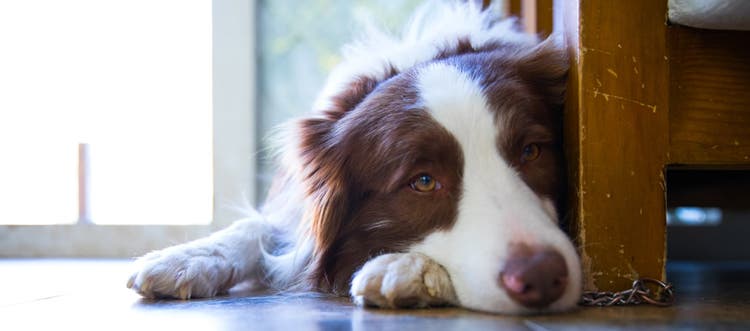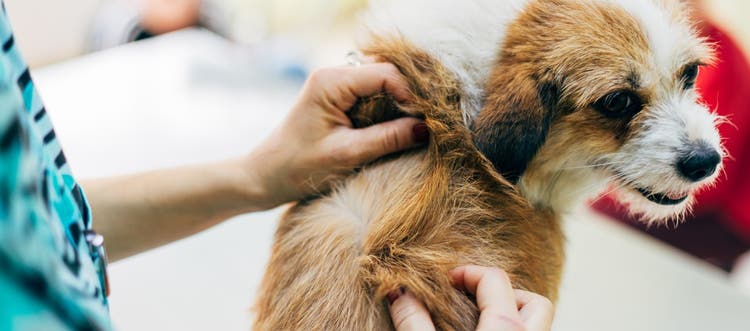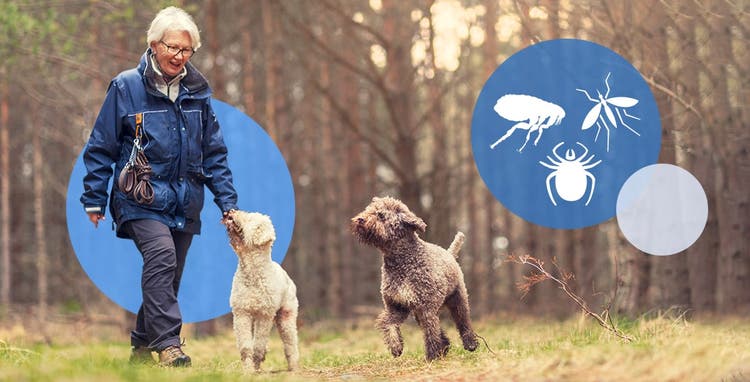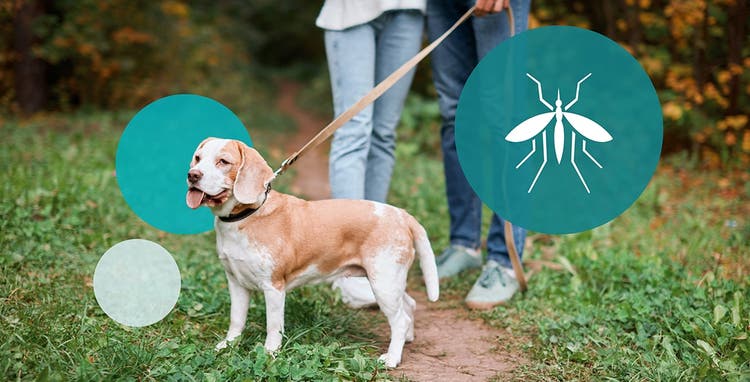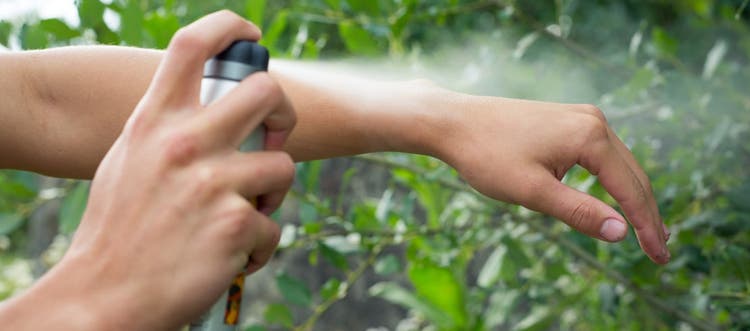What to know about dogs and mosquitoes.
When it comes to mosquitoes, it’s not just the buzzing and biting that can annoy you and your pet; it’s the bloodsucking, too. By piercing the skin and drinking directly from a blood vessel, mosquitoes’ bites can result in serious consequences that may compromise your dog’s health and happiness.
Get to know mosquitoes better and help keep your dog healthier with these 10 mosquito feeding facts.
1. Mosquitoes Transmit Diseases
The biggest danger posed by mosquito bites isn’t blood loss or discomfort — it’s disease. When a female mosquito injects her saliva into her host and begins drinking blood, she may distribute organisms and illnesses picked up during a prior blood meal.
For pets, the major disease transmission concern is heartworms. In fact, the only way heartworms can infect your dog is through a mosquito carrier. Year-round prevention of heartworms can be vital to protecting your pet’s health.
2. Mosquitoes Eat Nectar and Plant Juices
Like hummingbirds and butterflies, both male and female mosquitoes crave the sugary nectar of plants for energy. If you have these plants near your home or in your garden, make sure to stay extra-vigilant while you and your dog are outside.
3. Only Female Mosquitoes Bite
That’s right — male mosquitoes are strict vegetarians, maintaining a diet of nectar and plant juices. So why do female mosquitoes suck blood? Females need the proteins found in blood to produce their eggs. During the egg development cycle, females will search for a suitable blood meal host, which could be you or your dog.
4. Mosquitoes Don’t Die after They Bite
A female mosquito will live to feed again after it bites you or your pet. This repetitive feeding on different hosts during their lifespan turns mosquitoes into agents for spreading disease.
5. Mosquitoes Thin Their Host’s Blood with Saliva
Mosquitoes inject their own saliva into blood to make it easier for them to drink. Mosquito saliva then triggers an allergic reaction that can make you — and your dog — suffer from hives and itching.
6. It Takes One to Four Minutes for a Mosquito to Get Full
During a blood meal, female mosquitoes will drink until nearly full. And though she’ll discard other liquids to make extra room for the blood, she’ll still be so full that flight is difficult. This means she may stay close to you or your dog as she searches for a place to lay her eggs.
7. Dawn and Dusk Are Prime Mosquito Feeding Times
Most mosquitoes prefer to rest during the heat of the day and search for blood meals during dawn or dusk, when the temperature is cooler. If your dog enjoys being outdoors during these times as well, their risk of mosquito bites — and subsequent disease transmission — increases.
8. Mosquitoes Prefer Certain Hosts over Others
Ever wonder why one person or pet seems to attract more mosquitoes than another? Female mosquitoes use chemical, visual and heat sensors to find their next meal. They’re stimulated by the amount of carbon dioxide (CO2) exhaled, movement, smell, the amount of skin bacteria present and body heat.
9. Female Mosquitoes Are Ectoparasites
Like fleas and ticks, mosquitoes are uninvited bloodsuckers classified as ectoparasites: They live outside of and feed on their hosts without directly killing them. Proper prevention practices can help protect your dog from these irritating pests.
10. Three out of the Four Mosquito Life Stages Do Not Suck Blood
The mosquito life cycle has four stages — egg, larva, pupa and adult — but mosquitoes drink blood only when they mature into adults. This is also when they sprout wings and search for new food sources.
How to Keep Mosquitoes away from Your Dog
Fortunately, you can take a number of steps and precautions to help your dog live a better — and less itchy — life:
- Ask your vet to recommend a mosquito preventative product for your dog.
- If possible, keep your dog indoors during dawn and dusk.
- Avoid spending time outdoors near standing water or gardens designed to attract butterflies and bees — both can harbor mosquitoes.
- By understanding when and where mosquitoes feed, the dangers they can pose to your pet’s health, and the ways to prevent them, you can help protect your pet from these blood-sucking pests, as well as the diseases they can carry.

K9 Advantix® II
A convenient, monthly topical application that kills and repels fleas and ticks through contact, so they don't have to bite your dog to die. Do not use on cats.
